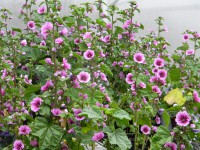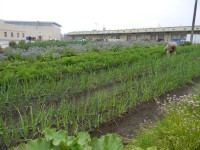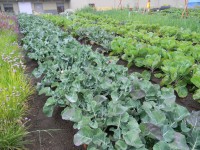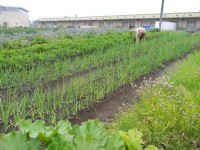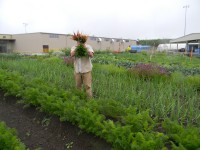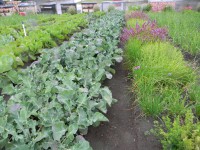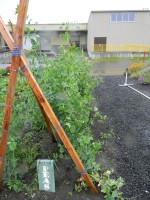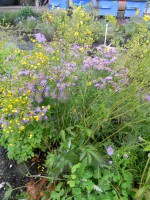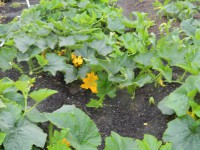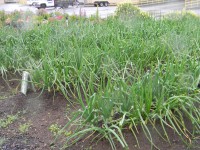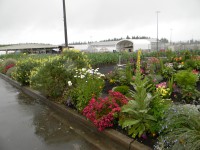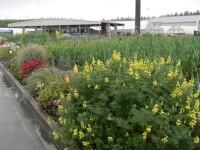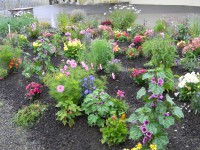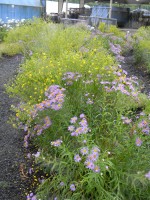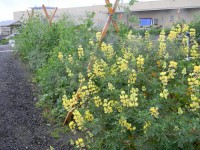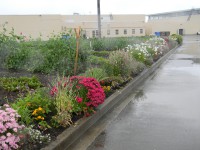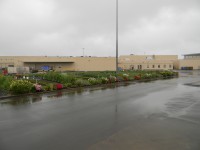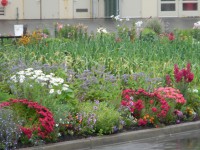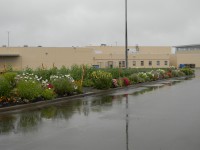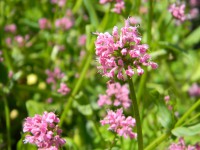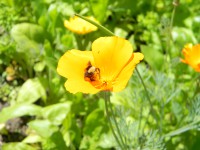Blooming Inside the Walls
By Graduate Research Associate Carl Elliott from Stafford Creek Corrections Center
Surrounded by acres of Douglas-fir forest and behind razor wire security fences, a garden tended by the offenders at Stafford Creek Corrections Center is flourishing. Their efforts to cultivate food and flowers has altered the landscape and nourished the spirit of those involved. These men asked me to provide a documentation of the garden for their families on the outside. I thought that this service alone was worth providing, but I also feel others outside the prison fence should have the opportunity to see and hear about the garden.
The spring weather on the coast of Washington this year was unusually cool and cool nights persist through July. Night temperatures have rarely stayed above 50° F. The cool weather caused heat loving plants like tomatoes, peppers, and squash to languish. However, crops such as broccoli, cabbage, peas, and carrots have exploded with growth. The offenders are gathering buckets full of carrots and peas to share with the prison kitchen.
All of the flower gardens were designed by the offenders. They paid special attention to creating habitat for insect pollinators. The plant families they cultivated in the pollinator garden were from the pink or catchfly family, the sunflower family, the pea family, and the mallow family. These plants provide nectar, pollen, and insect prey for beneficial insects. This is important because the garden is surrounded by concrete which provides poor pollinator habitat.
The other flower gardens include a cutting garden and a native prairie garden. The flowers from the cutting garden are used to beautify the visitor room in the summer. This allows friends and family to see the fruits of the men’s labors and make for a beautiful reception for visitors. The native prairie plant garden overflows with species from the conservation nursery. By seeing the plants they are cultivating for restoration, the men can begin to learn plant families and plant community associations found on the prairies.
The whole garden sits amidst a sea of concrete. Originally, it was a turf covered turn-around for delivery trucks. Staff grounds keeper, Jon Rydman, took the initiative to open up the space for the men to garden there two years ago. After a great amount of initial effort to cut the sod, lay the irrigation, and form the beds, the garden was started. Soil fertility has been improved by compost generated from prison kitchen waste. This unique in-vessel composting system is a pilot project coordinated by plant manager, Chris Idso. Creating a flourishing garden in a Correction Center requires cooperation and coordination among staff. The garden produces more than vegetables and flowers; it is also a place for education and change.
To donate to the SPP programs at Stafford Creek Corrections Center, click here.
